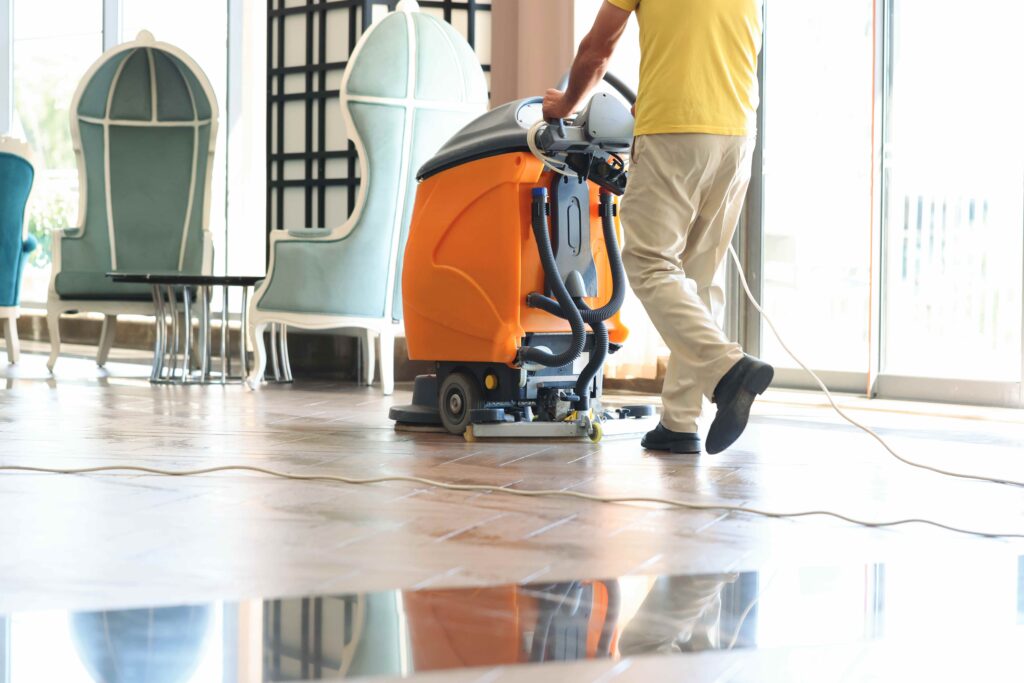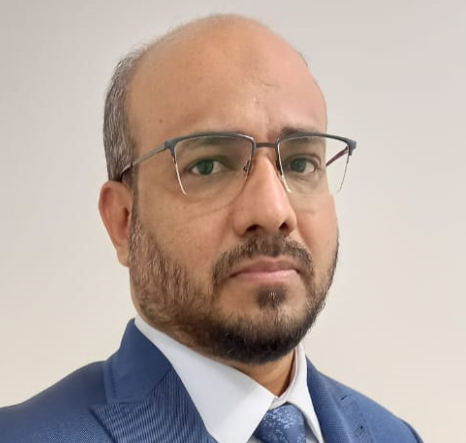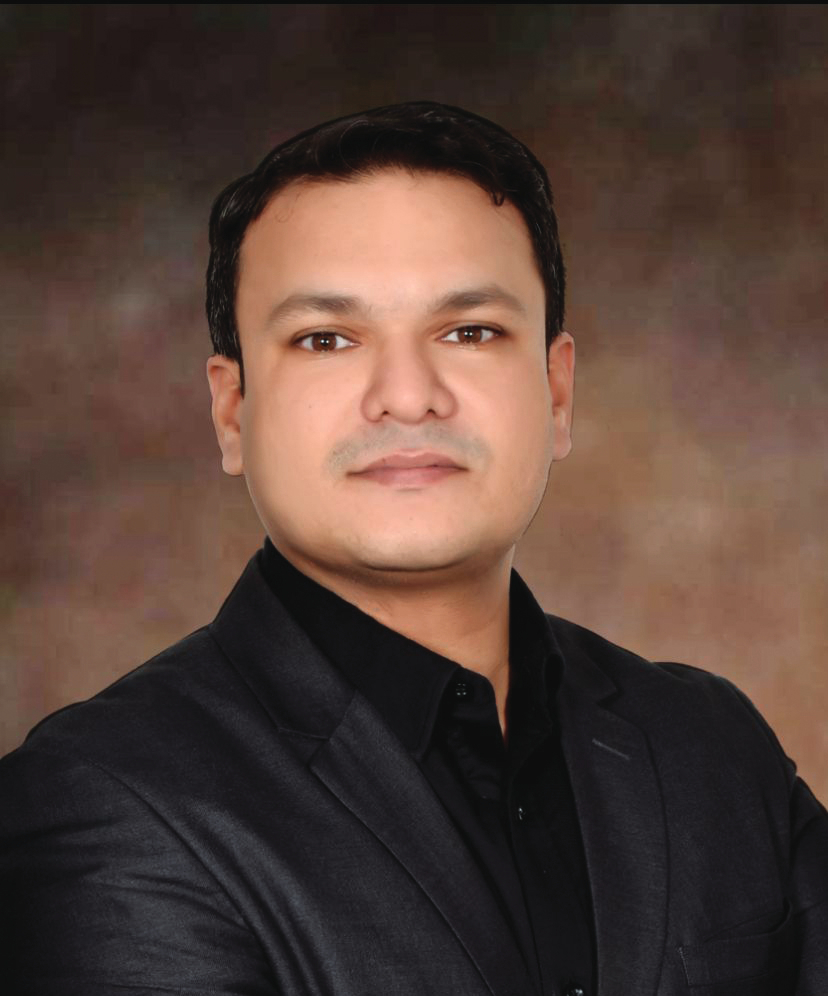
In the dynamic landscape of housekeeping, technological innovations, emerging trends, and specialised training are shaping the industry like never before. For hospitality, corporates and healthcare, staying abreast of the latest developments is crucial in delivering efficient and high-quality services that meet modern demands. Imran Khan, Director of Real Estate Management & Services, Colliers, Pune and Utsav Gupta, Executive Housekeeper, ITC Fortune Select Exotica, Navi Mumbai shares insights on the latest developments within housekeeping.

Robotics technology has been the biggest disruptor so far in the housekeeping segment.”
Imran Khan
Technology continues to revolutionize housekeeping operations, enhancing efficiency, sustainability, and customer satisfaction. One of the most impactful innovations is the advent of robotic cleaners. These autonomous machines can vacuum, mop, and even scrub floors, significantly reducing labour costs and improving cleaning consistency. Integrating sensors and AI, these robots navigate spaces intelligently, adapting to different floor surfaces and obstacles.
“The robotic technology is not yet being extensively used due to its limitations on the investment required and the corresponding returns to be achieved,” says Imran Khan. Manpower-based housekeeping is still a cheaper option and it will take time to streamline robotic products to achieve more effective cleaning. Currently, the robotic machines can take care of limited areas like lobbies and standard & uniformly shaped areas. Till such time where robotic machines are programmed for usage in non-uniform areas to achieve standard operations, manpower provides a simpler solution to achieve the cleaning of non-standard areas.
IoT (Internet of Things) devices, on the other hand, are becoming integral to housekeeping management. Smart sensors embedded in cleaning equipment and facilities can monitor usage, detect malfunctions, and optimize scheduling for maintenance. This data-driven approach not only ensures timely upkeep but also minimizes downtime and operational disruptions.
Another notable advancement is the use of eco-friendly cleaning products and techniques. With growing awareness of environmental impact, businesses are shifting towards biodegradable and non-toxic cleaning agents. These products not only safeguard the environment but also promote healthier indoor air quality, crucial for facilities like hospitals and hotels.
“The Fortune hotels are promoting eco-friendly practices in day-to-day operations. The AATMAN initiative targets to reduce and cut down the usage of single-use plastics. The guest room amenities like toothbrush and combs come in covers made up of corn starch which is environment- friendly,” Utsav Gupta adds.

Specialized training programs are now available to equip individuals with the knowledge and expertise needed to excel in modern housekeeping roles.”
Utsav Gupta
Emerging Trends
Several trends are reshaping the housekeeping sector, reflecting evolving consumer preferences and regulatory requirements. One prominent trend is the rise of green cleaning practices. Clients increasingly demand sustainable solutions, prompting cleaning companies to adopt eco-friendly products and procedures. Certification programs like LEED (Leadership in Energy and Environmental Design) encourage adherence to green standards, boosting credibility and marketability.
There is a noticeable shift towards customised cleaning solutions tailored to specific industries. For instance, healthcare facilities require rigorous disinfection protocols to prevent infections, while hotels prioritize cleanliness for guest satisfaction. Cleaning companies are diversifying their service offerings and training programs to meet these specialized needs effectively.
Furthermore, the concept of ‘smart buildings’ is gaining momentum. Integrated systems that control lighting, HVAC, and security are now incorporating cleaning management. Automated alerts for cleaning requirements based on foot traffic or usage patterns help optimize resources and enhance service responsiveness.
Imran opines that “mechanization of housekeeping is a fast-moving trend wherein use of appropriate machines could reduce the overall manpower requirements and or optimise the same to have cost-effective methods of cleaning. Battery-powered ride on sweepers, dust and garbage collectors especially in larger uniform areas in hotels, malls and healthcare units are going to be commonplace. For large open areas of factories, fuel driven, or battery-operated larger machines can cater to open non-standard or non-uniform areas for cleaning which can also reduce the considerable demand for manpower requirement. Trained operators can be provided for the same through upskilling the existing manpower.”
Checklist for housekeeping across sectors
To achieve and maintain high standards of stringent post-COVID hygiene levels:
• Comprehension of the right methodology and standard operating procedures is vital
• Knowledge of the appropriate tools and equipment to be used
• Recognising the characteristics of each cleaning surface is crucial, distinguishing between wood, carpet, steel, and other materials to apply the appropriate cleaning agents
• Understanding the suitable types of chemicals and consumables
• Understanding and using the right set of machines is vital
• Housekeeping staff must undergo specific training modules tailored to their tasks
• Ensuring hygiene through usage of appropriate sanitizers and chemicals is critical for effectively reducing viral infections in workplaces
• Utilizing the correct uniform, protective clothing, and equipment is necessary to minimise contamination levels
• Understanding the Material Safety Data Sheet (MSDS) is essential for supervising housekeeping operations and addressing any accidents effectively
— Imran Khan
Training and Skill Development
“Effective training is vital in harnessing these technological advancements and staying competitive in the housekeeping industry. Training programs now emphasize proficiency in operating various machine in use. Employees are trained not only in using the latest tools but also in troubleshooting common issues, ensuring uninterrupted service delivery,” says Utsav.
Soft skills such as customer interaction and adaptability are increasingly prioritized. Housekeepers are often frontline representatives of a business, directly impacting customer satisfaction. Training modules now incorporate communication skills, cultural sensitivity, and conflict resolution techniques to enhance service excellence.
Furthermore, ongoing education is essential to keep pace with regulatory changes and best practices. Certifications in green cleaning or specialised cleaning protocols equip employees with the latest knowledge and demonstrate commitment to quality standards. Continuous learning programs foster a culture of improvement and innovation within cleaning teams.
In conclusion, the housekeeping industry is undergoing a transformative phase driven by technological advancements, evolving trends, and progressive training methods. Embracing robotic cleaners, IoT integration, and eco-friendly practices are essential strategies for staying competitive and meeting client expectations. Investing in comprehensive training ensures that cleaning professionals are equipped with the skills and knowledge to deliver superior service in diverse environments. As the housekeeping industry continues to evolve, adapting to these changes will be key to success in the dynamic world of commercial cleaning.
 CIJConnect Bot-enabled WhatsApp
CIJConnect Bot-enabled WhatsApp












